
Find Help
More Items From Ergsy search
-

What should I do to prepare for spinal anaesthesia?
Relevance: 100%
-

What is spinal anaesthesia?
Relevance: 96%
-
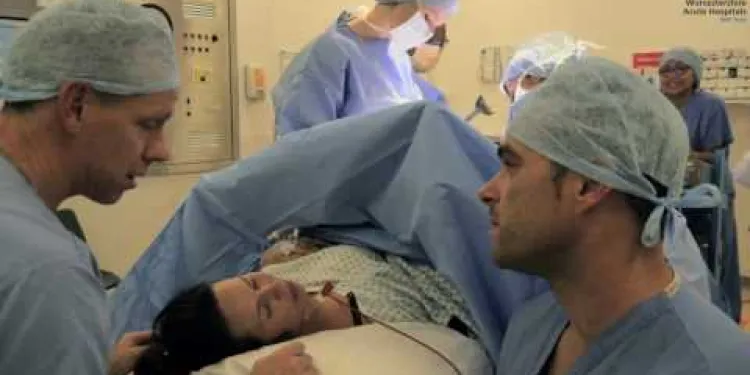
Spinal Anaesthesia for Caesarean Section
Relevance: 89%
-
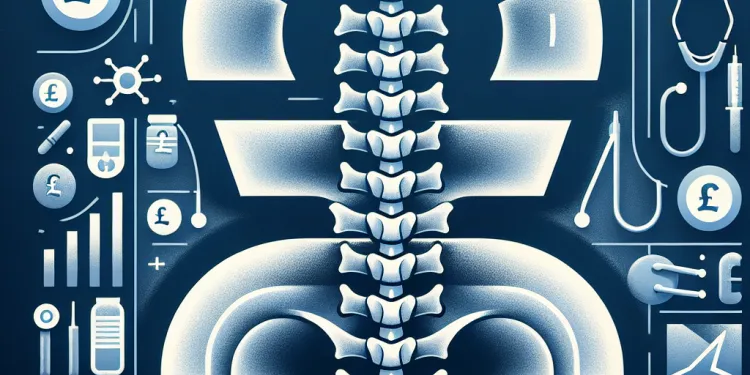
How will I be positioned for spinal anaesthesia?
Relevance: 87%
-

Is spinal anaesthesia safe for a Caesarean section?
Relevance: 82%
-

What are the common side effects of spinal anaesthesia?
Relevance: 81%
-

How is spinal anaesthesia different from an epidural?
Relevance: 80%
-

What should I expect after the spinal anaesthesia wears off?
Relevance: 71%
-

Can I breastfeed immediately after a Caesarean section under spinal anaesthesia?
Relevance: 68%
-

What type of anaesthesia is used during hip replacement surgery?
Relevance: 55%
-

Does IVF require anesthesia?
Relevance: 46%
-

Anaesthetic procedure for elective caesarean section (C section)
Relevance: 43%
-

Can spinal anaesthesia affect my baby?
Relevance: 40%
-
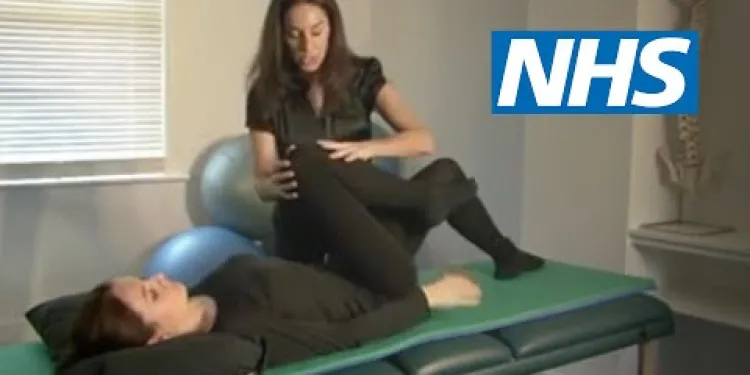
Exercises for sciatica: spinal stenosis | NHS
Relevance: 40%
-

How should I prepare for a C-section?
Relevance: 38%
-
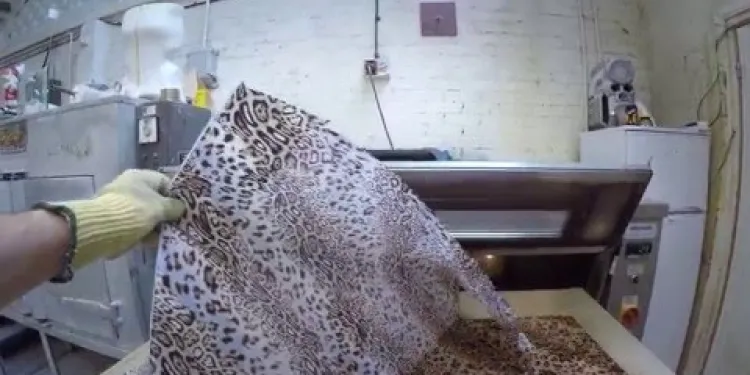
Making a spinal brace for a scoliotic patient at the RNOH
Relevance: 38%
-
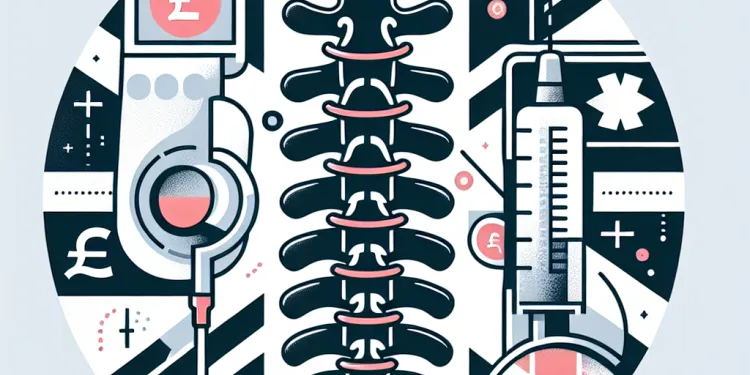
What are the alternatives to spinal anaesthesia for a Caesarean section?
Relevance: 37%
-

How long does spinal anaesthesia last?
Relevance: 37%
-

Your anaesthetic choices for your planned hip or knee replacement surgery at the RUH.
Relevance: 36%
-
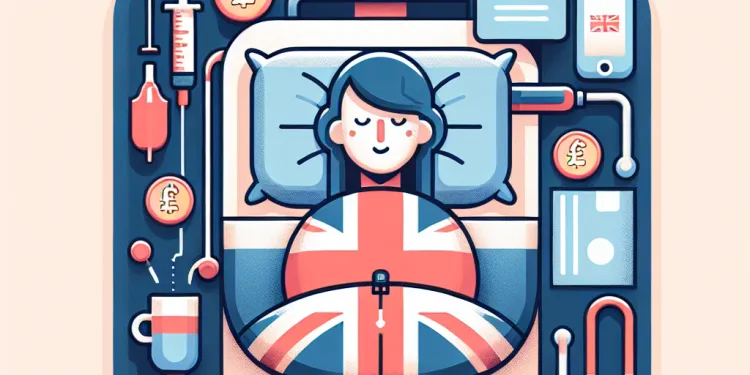
Will I be awake during a C-section?
Relevance: 35%
-

How do I prepare for hip replacement surgery?
Relevance: 33%
-
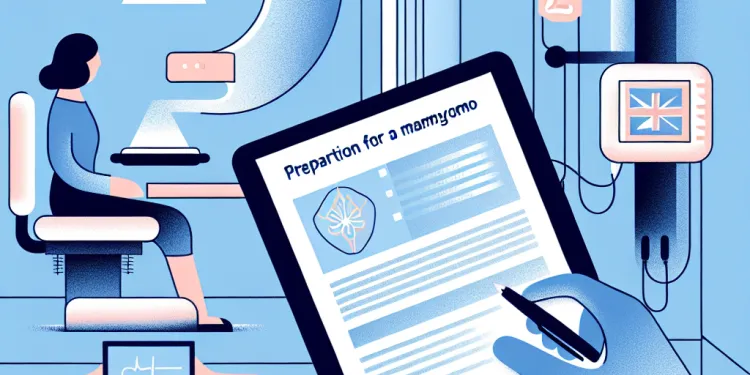
How do I prepare for a mammogram?
Relevance: 30%
-

How should I prepare for a hair transplant in Turkey?
Relevance: 30%
-

Charlie and Rupert on their journey with Spinal Muscular Atrophy and Zolgensma Gene Therapy
Relevance: 30%
-

How should I prepare for a facelift?
Relevance: 29%
-

Can exercises help with labor preparation?
Relevance: 29%
-

How do I prepare for a tribunal hearing?
Relevance: 28%
-
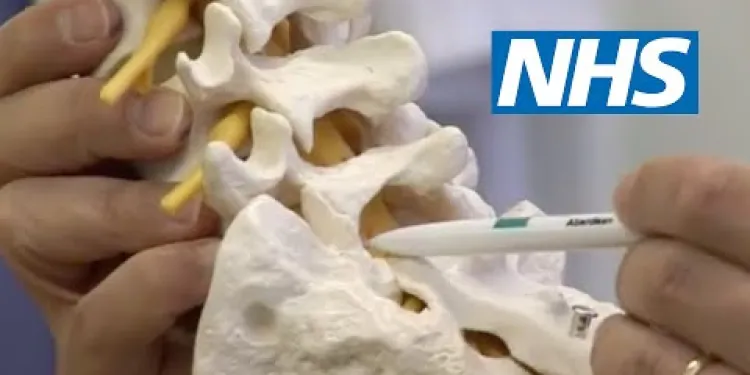
Lumbar surgery | NHS
Relevance: 28%
-

How should I prepare for a Botox appointment?
Relevance: 27%
-

Having a planned caesarean section
Relevance: 26%
-

Having a Caesarean Section
Relevance: 26%
-

How can I prepare for my first Hyrox competition?
Relevance: 25%
-

How soon should I prepare for the 2026 tax changes?
Relevance: 25%
-

How can I prepare for the DVSA Theory Test?
Relevance: 25%
-
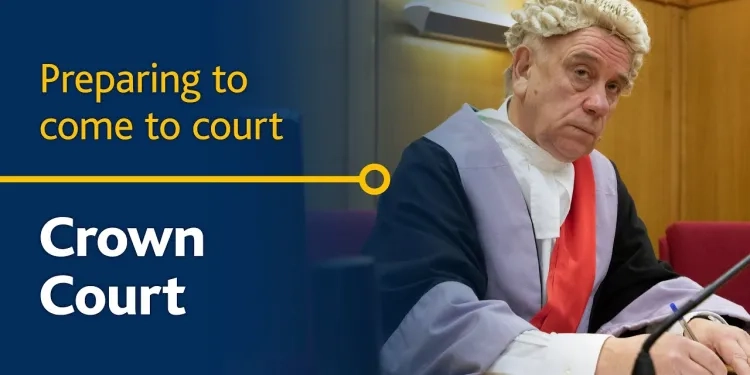
Crown Court - Preparing to come to court
Relevance: 25%
-

What is a Caesarean birth?
Relevance: 25%
-

How should I prepare for a womb lining test?
Relevance: 25%
-

Can my partner be with me during the Caesarean section?
Relevance: 24%
-

What is a lumbar puncture?
Relevance: 24%
-
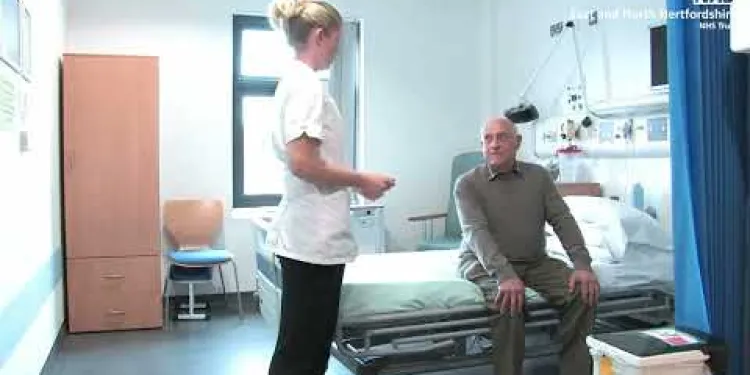
A journey to hip surgery
Relevance: 24%
Consult with Your Healthcare Provider
Before undergoing spinal anaesthesia, it is important to have a thorough discussion with your healthcare provider. This will typically involve an assessment of your medical history, including any previous experiences with anaesthesia, allergies, or other medical conditions. Inform your anaesthetist about any medications or supplements you are currently taking, as these could affect the anaesthesia process. Your healthcare provider will advise you on any adjustments to your medication regimen that may be required before the procedure.
Pre-Procedure Instructions
Your healthcare provider will give you specific pre-procedure instructions tailored to your individual needs. Generally, you may be instructed to fast for a certain period before the procedure, typically not eating or drinking anything for six to eight hours. This is crucial to minimise the risk of aspiration during the procedure. You should also avoid alcohol and smoking for at least 24 hours prior, as these can interfere with the effects of the anaesthesia and overall recovery.
What to Wear and Bring
On the day of the procedure, wear loose, comfortable clothing. You should also bring a list of any medications you are currently taking, including doses and frequency. Make arrangements for someone to accompany you on the day of the procedure, as you will likely be unable to drive afterwards. Having a friend or family member with you can also provide emotional support and help with any immediate post-procedure needs.
Understanding the Procedure
Understanding what spinal anaesthesia entails can help alleviate any anxieties. Spinal anaesthesia involves injecting medication into the fluid surrounding your spinal cord, which provides numbness to the lower part of your body while keeping you conscious. Your anaesthetist will explain the procedure, potential risks, and benefits. Do not hesitate to ask any questions or voice concerns you may have.
Post-Procedure Care
After receiving spinal anaesthesia, you will be monitored in the recovery area. It is normal to experience some mild discomfort or headache, which can be managed with pain relief medications prescribed by your healthcare provider. Follow all post-procedure instructions, which may include staying hydrated, avoiding heavy lifting, and gradually resuming normal activities. Rest is important, so ensure you give yourself ample time to recuperate before returning to daily tasks.
Recognising Complications
While complications are rare, it is important to recognise any signs that may require medical attention. Contact your healthcare provider if you experience severe headaches, unexplained fever, back pain, or any neurological symptoms such as tingling or numbness in your legs. Early detection and management are key to ensuring a smooth recovery. Trusting your body and communicating with healthcare professionals is essential for a safe and successful experience with spinal anaesthesia.
Talk to Your Doctor
Before you get spinal anaesthesia, talk to your doctor. You should tell them about your health, like any allergies or times you've had anaesthesia before. Also, tell them about any medicine or vitamins you take because they might change how the anaesthesia works. Your doctor will tell you if you need to change what you take before the procedure.
Instructions Before the Procedure
Your doctor will give you instructions for the procedure. Usually, you should not eat or drink for six to eight hours before. This helps keep you safe during the procedure. Also, do not drink alcohol or smoke for at least a day before because they can affect how the anaesthesia works and your recovery.
What to Wear and Bring
On the day of the procedure, wear loose, comfortable clothes. Bring a list of the medicines you take. You should have someone come with you because you will not be able to drive home after. Having a friend or family member with you can help you feel better and assist you after the procedure.
Understanding the Procedure
Knowing what spinal anaesthesia is can help you feel less worried. It means putting medicine near your spine to numb your lower body while you stay awake. Your doctor will explain how it works and any risks. If you have questions or are worried, just ask.
Care After the Procedure
After you get spinal anaesthesia, you will stay in a recovery area. It's normal to feel a bit uncomfortable or have a headache, and medicine can help with that. Follow what your doctor tells you, like drinking water, not lifting heavy things, and resting. Give yourself time to rest before going back to normal activities.
Knowing When to Call the Doctor
Problems are rare, but know when to call your doctor. Do this if you have a bad headache, fever, back pain, or if your legs feel numb or tingly. Noticing problems early helps you get better faster. Remember to trust your feelings and talk to your doctor for a safe experience with spinal anaesthesia.
Frequently Asked Questions
What is spinal anaesthesia?
Spinal anaesthesia is a type of regional anaesthesia where a local anaesthetic is injected into the cerebrospinal fluid in the lower spine, numbing the lower half of the body.
Why do I need spinal anaesthesia?
Spinal anaesthesia is often used for surgeries on the lower abdomen, pelvis, and legs. It allows you to be awake without feeling pain in the area being operated on.
How should I prepare for spinal anaesthesia?
Follow your doctor's instructions, which may include fasting before the procedure, stopping certain medications, and arranging for someone to drive you home.
Can I eat before spinal anaesthesia?
You will likely be advised to not eat or drink anything for several hours before the procedure. Follow your doctor's instructions.
Should I stop my medications before spinal anaesthesia?
Inform your doctor about all medications you're taking. Some may need to be stopped before the procedure.
Can I drive myself home after receiving spinal anaesthesia?
No, you should arrange for someone to drive you home after the procedure, as the effects can take several hours to wear off.
What should I wear on the day of the procedure?
Wear loose, comfortable clothing and avoid wearing jewelry or valuables.
Will I be able to feel any pain during the procedure?
You should not feel pain in the area affected by the spinal anaesthesia, but you may feel pressure or movement.
How long does the effect of spinal anaesthesia last?
The effects can last from 1.5 to 4 hours, depending on the type and dosage of anaesthetic used.
What are the risks associated with spinal anaesthesia?
Risks can include headache, low blood pressure, and in rare cases, nerve damage or infection.
Will I be awake during the surgery with spinal anaesthesia?
Yes, you will be awake but may be given sedatives to help you relax.
Can I request to be sedated during the procedure?
Yes, you can discuss sedation options with your anaesthetist if you prefer to be more relaxed or not remember the procedure.
How is spinal anaesthesia administered?
An anaesthetist will inject a local anaesthetic into your lower back, into the space around your spinal cord.
What should I expect immediately after receiving spinal anaesthesia?
You may feel numbness in the lower half of your body, and you will be monitored as the anaesthetic wears off.
How can I manage pain after the spinal anaesthesia wears off?
Your doctor will provide pain management options, which may include oral medications or additional injections.
Can I eat and drink after the procedure?
You will be instructed when it is safe to eat and drink after the procedure, generally once the effects of the anaesthetic have worn off.
Should I avoid certain activities after receiving spinal anaesthesia?
Avoid rigorous activities for a specified period and follow your doctor’s post-procedure instructions carefully.
Will I need any follow-up appointments?
Your doctor will inform you about any necessary follow-up appointments based on your surgery and recovery.
How can I reduce anxiety about receiving spinal anaesthesia?
Discuss your concerns with your medical team, ask questions, and consider deep breathing or other relaxation techniques.
Is there anyone I should contact if I have concerns before the procedure?
Contact your healthcare provider or the anaesthesia team with any concerns or questions before the procedure.
What is spinal anaesthesia?
Spinal anaesthesia is a special kind of medicine. It helps stop pain in your body.
Doctors use it to make you feel better during an operation or procedure.
The medicine goes into your back. It stops your body from feeling pain for a while.
You can ask your doctor if you have questions. You can also use pictures to help you understand more.
Spinal anaesthesia is a way to make part of your body numb. A special medicine is put in your lower back. This makes the lower part of your body feel no pain.
Why do I need medicine to numb my back?
Spinal anaesthesia is a special medicine for surgeries on your lower belly, hip area, and legs. It helps you stay awake without feeling any pain where the doctors are working.
How can I get ready for spinal anaesthesia?
Spinal anaesthesia is medicine that makes you numb from the waist down. It helps you not feel pain during some surgeries.
Here are some tips to get ready:
- Listen to your doctor. They will tell you what to do.
- You might need to stop eating or drinking. Your doctor will say when.
- Wear comfy clothes to the hospital.
- Ask someone to come with you. They can help you after surgery.
- Tell the doctor about any medicine you take or if you feel sick.
If you have questions, ask your doctor or nurse. They are there to help you!
Listen to your doctor's advice. They might tell you not to eat or drink before the test. You might have to stop taking certain pills. Make sure you have someone ready to drive you home after.
Can I eat before spinal anaesthesia?
Spinal anaesthesia is a special medicine that makes you not feel anything during an operation. You cannot eat or drink before getting this medicine. This is to make sure you are safe. Your doctor or nurse will tell you when you can eat again.
Your doctor will tell you not to eat or drink anything for some hours before the test. Make sure you listen to them.
Do I need to stop taking my medicine before a spine injection?
Tell your doctor about all the medicines you take. You might have to stop taking some before the procedure.
Can I drive home after getting medicine in my back to stop pain?
No, you should ask someone to drive you home after the procedure. The effects can last for a long time.
What clothes should I wear on the procedure day?
Here are some tips to help you:
- Wear comfortable clothes.
- Choose loose-fitting clothes, like a t-shirt and joggers.
- Pick shoes that are easy to take off, like slip-ons.
- You might want to bring a sweater or jacket to stay warm.
Ask a friend or family to help you get ready if you need it. Taking notes or using a checklist can help you remember what to wear.
Wear clothes that are loose and comfy. Don't wear jewelry or bring things that are valuable to you.
Will it hurt?
You should not feel pain where the spinal anaesthesia was done. But you might feel some pushing or movement there.
How long does spinal anaesthesia last?
Spinal anaesthesia is a special medicine that numbs part of your body during surgery. This helps so you don’t feel pain. The numb feeling from this medicine usually lasts about 1 to 3 hours. Sometimes it can last longer, up to 4 or 5 hours.
If you want to learn more or get help, you can use:
- Simple picture guides to show how spinal anaesthesia works.
- Videos with easy explanations.
- Ask a friend or family member to explain if you have questions.
The effects of the medicine can last for a short time. This can be from 1 and a half hours to 4 hours. How long it lasts depends on the kind and amount of medicine used.
What are the dangers of spinal anaesthesia?
Spinal anaesthesia is a type of medicine that makes you numb for surgery.
Here are some dangers to know about:
- You might get a headache after.
- Your tummy might feel sick or you might throw up.
- Your blood pressure might go low, making you feel dizzy.
- Some people might get an infection where they had the injection.
- There can be more rare problems, so doctors are very careful.
If you find reading hard, you can ask someone to read to you. It is okay to ask questions until you understand.
Some things that can happen are headaches, low blood pressure, and sometimes nerve damage or infections. These last two are very rare.
Will I be awake during the surgery with spinal anaesthesia?
Will I be awake when the doctor gives me medicine in my back to stop pain during surgery?
Sometimes, you might be awake. The doctor can also give you medicine to help you feel calm or sleepy.
If you are worried, talk to your doctor. They can explain what will happen.
Ask someone you trust to help you understand. You can use pictures or videos to learn about it.
Yes, you will be awake. You might get medicine to help you feel calm.
Can I ask to be asleep during the procedure?
If you are scared or worried about the procedure, you can ask the doctor to make you sleep. This is called sedation. It helps you feel calm and relaxed. Being asleep means you won't feel anything during the procedure.
Here are some tips to help you:
- Tell the doctor about your feelings.
- Ask questions if you're unsure.
- Bring a trusted friend or family member for support.
- Practice deep breathing to help you relax.
It's important to talk with your doctor and understand what will happen. They will help you decide what's best for you.
Yes, you can talk to the person who gives you medicine to help you sleep during an operation. You can ask about medicines that help you feel calm or forget the operation.
How do doctors give spinal anaesthesia?
Doctors use a needle to give medicine in your back. This helps you not feel anything in part of your body during surgery. You will be awake, but you won’t feel pain.
It helps to sit very still when the doctor gives you the medicine. Sometimes, they might ask you to lie down.
Using pictures or videos can help you understand better what happens. You can also ask someone to explain it to you.
A doctor will give you a special medicine in your lower back. This medicine helps you not feel pain. It is put in the area near your backbone.
What happens right after you get spinal anaesthesia?
You might feel like your legs and lower body are a bit sleepy or tingly. The doctors and nurses will keep an eye on you to make sure you’re okay as this feeling goes away.
How can I handle pain after spinal anaesthesia is gone?
When the numb feeling from spinal anaesthesia stops, you might feel some pain.
Here are some ways to help with the pain:
- Take Medicine: Your doctor might give you medicine to help with pain. Make sure to take it as they tell you.
- Rest: Try to rest and not move too much. This can help your body heal.
- Use Ice Packs: Putting a cold pack on the sore area for a little while can help reduce pain and swelling.
- Talk to Your Doctor: If the pain is very bad or doesn’t get better, tell your doctor. They can help you find the best way to feel better.
If you find it hard to understand or remember, you can:
- Ask a Friend or Family Member: They can help you remember what to do.
- Use a Checklist: Write down each step so you don’t forget.
Your doctor can help if you are in pain. They might give you medicines to swallow or extra injections to make you feel better.
Can I eat and drink after the procedure?
Yes, you can eat and drink. Wait until the doctor says it's okay. Start with soft foods and drinks. If you feel okay, you can eat normal foods later.
Here are some tips to help you:
- Ask someone to remind you when it's time to eat.
- Use a timer to remember drinking water often.
- Write down what you eat and drink.
Your doctor will tell you when it is safe to eat and drink after the procedure. This usually happens when you are no longer feeling sleepy from the medicine.
What activities should I not do after getting spinal anaesthesia?
Don't do any hard activities for a while. Listen closely to what your doctor tells you to do after the procedure.
Will I need more check-ups?
After you see the doctor, you might have to go back. The doctor will tell you if you need more check-ups.
Tip: You can use a calendar or ask someone to help you remember your check-up dates.
Your doctor will tell you if you need any more check-ups after your surgery. This will depend on how your recovery is going.
How can I feel less worried about getting spinal anaesthesia?
Here are some ways to feel better:
- Ask your doctor to explain what will happen. Knowing things can help you feel less scared.
- Take deep breaths. Breathe in slowly and out slowly to feel calm.
- Bring a friend or family member with you. They can help and support you.
- Listen to music you like. Music can help you relax.
- Think about fun places or things you enjoy. This can make you feel happy.
- Ask the nurse if you can hold a soft toy or pillow. It might help you feel safe.
These ideas can help you feel more at ease. Always talk to your doctor or nurse if you feel worried.
Talk to your doctor or nurse if you have worries. Ask questions if you need more information. Try deep breathing to help you feel calm. You can also try other ways to relax.
Who can I talk to if I am worried before the procedure?
If you have any worries or questions before your procedure, talk to your doctor or the anaesthesia team. They can help you understand what will happen.
Useful Links
This website offers general information and is not a substitute for professional advice.
Always seek guidance from qualified professionals.
If you have any medical concerns or need urgent help, contact a healthcare professional or emergency services immediately.
- Ergsy carfully checks the information in the videos we provide here.
- Videos shown by Youtube after a video has completed, have NOT been reviewed by ERGSY.
- To view, click the arrow in centre of video.
- Most of the videos you find here will have subtitles and/or closed captions available.
- You may need to turn these on, and choose your preferred language.
- Go to the video you'd like to watch.
- If closed captions (CC) are available, settings will be visible on the bottom right of the video player.
- To turn on Captions, click settings .
- To turn off Captions, click settings again.
More Items From Ergsy search
-

What should I do to prepare for spinal anaesthesia?
Relevance: 100%
-

What is spinal anaesthesia?
Relevance: 96%
-

Spinal Anaesthesia for Caesarean Section
Relevance: 89%
-

How will I be positioned for spinal anaesthesia?
Relevance: 87%
-

Is spinal anaesthesia safe for a Caesarean section?
Relevance: 82%
-

What are the common side effects of spinal anaesthesia?
Relevance: 81%
-

How is spinal anaesthesia different from an epidural?
Relevance: 80%
-

What should I expect after the spinal anaesthesia wears off?
Relevance: 71%
-

Can I breastfeed immediately after a Caesarean section under spinal anaesthesia?
Relevance: 68%
-

What type of anaesthesia is used during hip replacement surgery?
Relevance: 55%
-

Does IVF require anesthesia?
Relevance: 46%
-

Anaesthetic procedure for elective caesarean section (C section)
Relevance: 43%
-

Can spinal anaesthesia affect my baby?
Relevance: 40%
-

Exercises for sciatica: spinal stenosis | NHS
Relevance: 40%
-

How should I prepare for a C-section?
Relevance: 38%
-

Making a spinal brace for a scoliotic patient at the RNOH
Relevance: 38%
-

What are the alternatives to spinal anaesthesia for a Caesarean section?
Relevance: 37%
-

How long does spinal anaesthesia last?
Relevance: 37%
-

Your anaesthetic choices for your planned hip or knee replacement surgery at the RUH.
Relevance: 36%
-

Will I be awake during a C-section?
Relevance: 35%
-

How do I prepare for hip replacement surgery?
Relevance: 33%
-

How do I prepare for a mammogram?
Relevance: 30%
-

How should I prepare for a hair transplant in Turkey?
Relevance: 30%
-

Charlie and Rupert on their journey with Spinal Muscular Atrophy and Zolgensma Gene Therapy
Relevance: 30%
-

How should I prepare for a facelift?
Relevance: 29%
-

Can exercises help with labor preparation?
Relevance: 29%
-

How do I prepare for a tribunal hearing?
Relevance: 28%
-

Lumbar surgery | NHS
Relevance: 28%
-

How should I prepare for a Botox appointment?
Relevance: 27%
-

Having a planned caesarean section
Relevance: 26%
-

Having a Caesarean Section
Relevance: 26%
-

How can I prepare for my first Hyrox competition?
Relevance: 25%
-

How soon should I prepare for the 2026 tax changes?
Relevance: 25%
-

How can I prepare for the DVSA Theory Test?
Relevance: 25%
-

Crown Court - Preparing to come to court
Relevance: 25%
-

What is a Caesarean birth?
Relevance: 25%
-

How should I prepare for a womb lining test?
Relevance: 25%
-

Can my partner be with me during the Caesarean section?
Relevance: 24%
-

What is a lumbar puncture?
Relevance: 24%
-

A journey to hip surgery
Relevance: 24%


